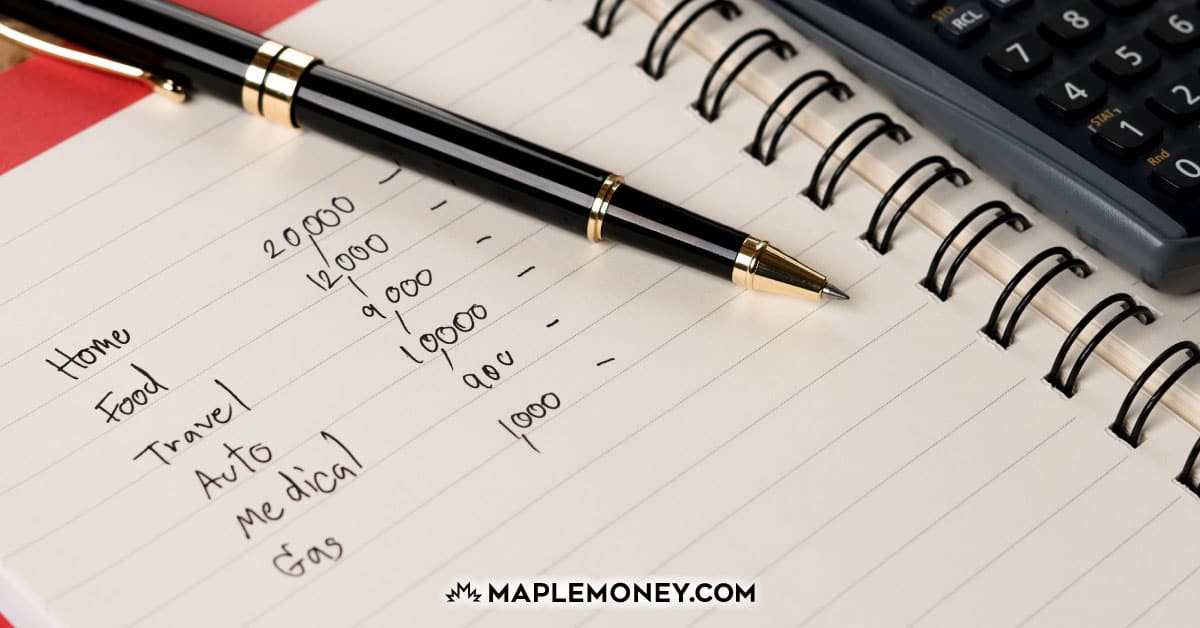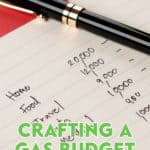Crafting a Gas Budget

Now that we are in the heat of summer, there’s nothing quite like the open road. During the winter, roads are dangerous, unforgiving, and generally quite frustrating to deal with. Getting from place to place is such a hassle. However, now that the sun is up far longer than it is down, and there’s nothing but clean clear driving to do, the road has become a beacon of freedom and unlimited possibility. However, freedom and possibility don’t always come cheap. Last week I wrote about how to calculate your fuel economy. So once you know how much fuel you are consuming as you are going from place to place, you can start accurately budgeting for gas. This is how you do it.
First, get all the information that you need. You will need your fuel economy estimate, as well as the local gas price. Gas prices are always changing, of course, so your gas budget will always be an estimate, but we will be as accurate as we can be. Now, what we want to do is figure out how much it is costing us to drive one kilometre. From there, we can determine how much it will cost us to get to work, to school, or on that summer road trip you are planning. So let’s take our fuel economy from last week. In my case, it was 7.94 litres per 100 kilometres. A simple division of 100 (you had best not need a calculator for that) leaves me with the calculation that I am consuming .0794L per kilometre (approximately, on average). Keep as many decimals as you can, as the more accurate you can be with this number the more accurate your estimates will be later on. From there, we can multiply this amount of fuel by the cost of fuel (approximately $1.10/L here) and that will give us a cost of $0.08734/km. It costs me almost 9 cents for every kilometre that I drive.
Now that we have a cost per kilometre, let’s look at your monthly gas budget. You might have a rough idea of how much you are spending each month on gas, whether it is one, or two, or three hundred dollars, but do you ever bother figuring out where those dollars of fuel go? We track our regular spending, should we not track our fuel spending? Go ahead and hop on Google Maps and type in your work and home address. Let it calculate the route between your office and your living room and see just how far you drive to work every day. In my case, it is about 19.6km. Now, as long as the route matches what you actually drive, you can estimate how much it costs you to get to and from work. 19.6 x 0.08734 = $1.71, each direction. So $3.42 per day for me to get to and from work. It is interesting to note here that when I was taking transit, I was paying $110 per month. So averaging about 22 work days per month, that’s $5 a day to get to and from work. Of course I also used the transit pass to get groceries, etc, but apparently driving a car just for work makes financial sense in my situation. Good to know.
So here again we can look at our monthly budget. Let’s take those same 22 work days per month and multiply them by the daily cost of commuting. 22 x 3.42 = $75.24. So about eighty dollars a month for gas to get me to and from work. Except I am spending about $120-130 a month on gas, so where are those extra dollars going? Driving to the movies, to the store, on a Dairy Queen blizzard run, etc. If I was on a tighter budget, I would be a lot more aware of just how much it is going to cost me to drive to my friend’s house 50 kilometres away.
What else can we do with this information? Well, are you planning a trip this summer? If you’re going on a road trip, you can quickly pop a general route into google maps and let it estimate how far you are going to drive. Let’s say you figure that you want to drive across Canada. From your route trip, you can not only determine how much it will cost you for fuel, but you can also determine how often you will need to stop to fill up for gas.
You can also use this information if you ever decide to offer a friend a ride to the airport. If you are concerned about receivinggas money, and you want your friend to pay an accurate price for the cost of the trip, then you can easily determine how much gas money it is actually costing you to drive a friend from place to place. Whether or not you actually charge your friend that amount, well, that is up to you. There’s always the consideration of time, energy, as well as wear and tear on the vehicle.
Are you thinking about a change in work or residence? You can use this same principle to figure out how much it might save you to move closer to the office, or how much it will impact your budget to move out to the country. Can’t decide between delivery or pickup? How much will it cost you to drive and pick it up (delivery might actually be cheaper)!
There’s tons of ways to look at your fuel consumption once you realize just how much, or how little, you are spending driving around in your vehicle. Do you watch how you are spending your fuel?


Comments
It appalled me to calculate a few years ago that it costs me about 10 cents per km with my honda.. it really makes you re-think about driving to the local grocery store!
Because I have that shocking information (thanks Gordon Campbell for instituting all those lovely taxes), I try to bike to places that are close by now. Good the environment, good for my wallet, good for me! Win win win!
Today I drove past the gas station and the price at the pump was $1.19/L.
Ouch.
I thoroughly enjoyed reading this post, being as we’re about to spend a few weeks on Canadian roads next summer. Glad to see you guys are using kilometers and litres, whew.
We’ll be covering quite the distance too, arriving from Glacier NP in the US, to Calgary, then Jasper, and back through Field to Vancouver, Victoria and Vancouver Island.
Can’t wait!
To help with my gas budget, I take the bus and subway to work and only use my car when I really need to. Since I live in Toronto, it is cheaper to take the bus than to pay for parking everywhere I go and to pay for gas.
For me, the best to way to plan your gas budget is to make sure you know your route for the whole day. This is to avoid going to the south part of your place then going to the north then back to the south.
For me, the best to way to plan your gas budget is to make sure you know your route for the whole day. This is to avoid going to the south part of your place then going to the north then back to the south.
I try to save on gas by avoiding unnecessary trips. I plan my trips ahead and try to accomplish all necessary tasks en route.
Also here is a great gas savings calculator https://www.xpensetracker.com/Resources_calculators.asp